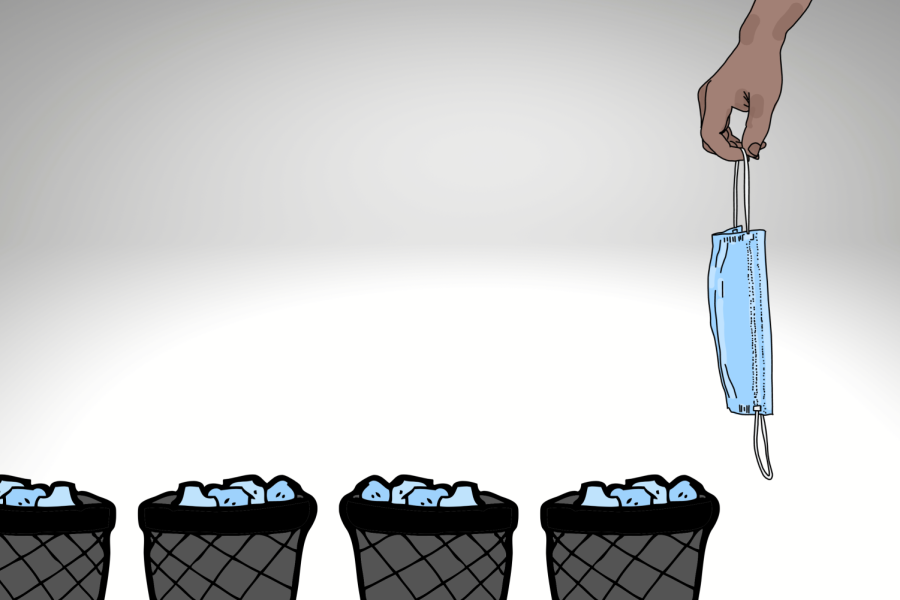Green Labs Certification Program aims to increase sustainable practices in Northwestern labs
The Green Lab Certification Program encourages more sustainable practices, such as shutting off equipment nightly, recycling materials and electronic waste, conserving water and energy and disposing hazardous materials effectively.
February 13, 2023
Northwestern sustainNU began the Green Labs Certification Program Fall Quarter to encourage more sustainable practices in lab facilities on campus.
The program is an extension of the existing Green Office Certification, which encourages environmental practices — such as recycling and reducing waste — in on-campus workplaces.
Program Administrator of Sustainability Cria Kay works with labs at NU’s Evanston and Chicago campuses to design and implement sustainable practices tailored to each lab space, such as using energy-efficient settings for electronic devices.
“Labs are oftentimes one of the highest energy, water and resource users on campus,” Kay said. “So, the Green Labs (Certification) Program is focused on instilling best practices for sustainable lab management and operations.”
Practices she encourages include shutting off equipment nightly, recycling materials and electronic waste, conserving water and energy and disposing of hazardous materials effectively.
Participating labs are required to complete 75% of sustainable practices, according to the Green Labs Certification Guide. To be certified, these labs must also complete a multi-pronged process that includes participation in a sustainNU presentation and a walkthrough with the lab and sustainNU..
Associate Director of Sustainability Julie Cahillane said the certification is rooted in adapting campus labs’ infrastructure to better support sustainability.
“This is a way to help engage folks,” Cahillane said. “Whether they’re in an office or a lab, and understanding how they can adopt sustainable practices to make the impact of their individual or their group’s operations better.”
Certified labs each appoint one or more green leaders, depending on the size of their site. Since labs typically have a high turnover rate as research students graduate, green leaders help these spaces commit to sustainable goals, Kay said.
Fifth-year material science and engineering Ph.D. student Matt Sweers, a green leader for Seitz Lab, said he first reached out to Kay to express interest in the position after learning about the new program through sustainNU’s newsletter.
“There are certain practices that we can adopt that are more environmentally friendly, considering that most of us are very motivated by environmental challenges,” Sweers said.
He said most items in his lab space, such as contaminated plastic waste, are not recyclable. But, through the program, the lab hopes to implement more changes to conserve resources and reduce waste, Kay said, although they are still developing a specific plan.
The program plans to utilize plugboard monitors to track energy savings case studies. Kay said the program also aims to monitor biohazardous wastes, electronic recycling and energy conservation from background machinery.
“This really is intended to change the culture and operations of the lab in the long term,” Kay said.
But, NU is not the only institution encouraging more sustainable practices within labs.
University of Illinois at Chicago and the University of Chicago both have sustainability programs similar to sustainNU. UIC’s LabShare Program accepts donations of lab supplies to minimize waste, and UChicago employs a GreenLabs initiative to conserve energy and reduce waste.
sustainNU also partnered with other campus organizations for the Green Labs Certification Program, including the Feinberg School of Medicine, Northwestern Office for Research Safety and Science Policy Outreach Task Force.
Sweers said few lab researchers have heard of the program, which he hopes gains more traction and awareness in coming years.
“I think it would be good if it’s a requirement for a lot of labs here,” Sweers said. “I know there (are) limitations to what certain labs can do. But I think in general, Northwestern has a lot of room for improvement in terms of environmental sustainability.”
Email: [email protected]
Twitter: @chelseaqizhao
Related Stories:
— SustainNU set to release second 5-year Strategic Sustainability Plan in 2022
— Ryan Fellow Matthew Coile discusses recyclable plastic research
— Sustainable Evanston fashion show promotes sustainability, mutual aid


